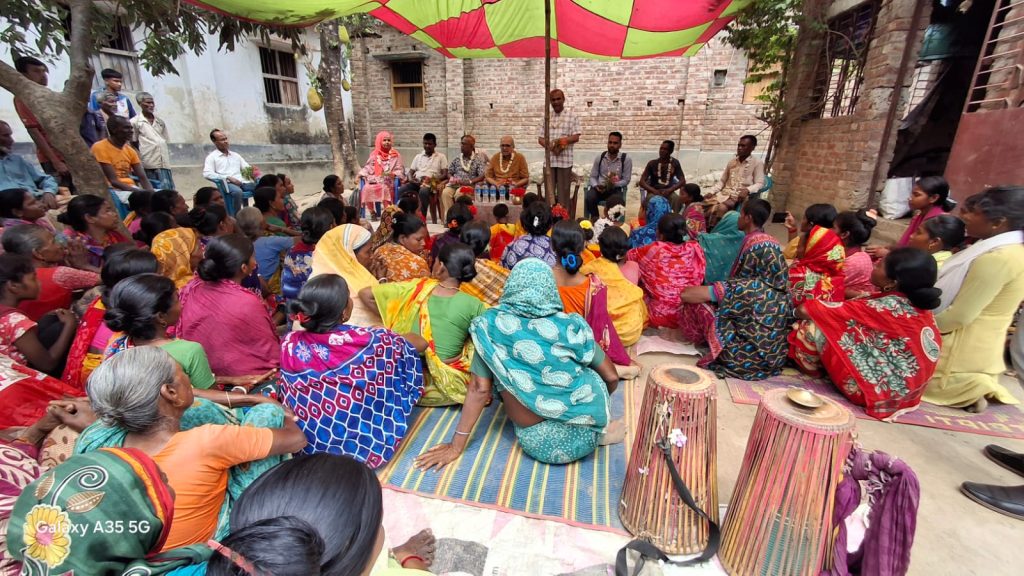On Thursday, 15 May 2025, a vibrant ceremony marked the official inauguration of the Ghashful CARE Project in the indigenous village of Chakbeni under Mathura Union in Badalgachhi Upazila, Naogaon.
The project has been initiated by the United Nations Development Programme (UNDP) to bring sustainable and positive changes to the lives and livelihoods of indigenous communities. Funded by the UNDP and the Global Environment Facility-Small Grants Programme (GEF-SGP), the core objective of the initiative is to enhance the climate adaptation capacity of local indigenous people who are particularly vulnerable to the impacts of climate change. The project aims to support the environmentally and economically marginalized indigenous families of the Barind region.
The inauguration ceremony was graced by the presence of Mr. Aftabur Rahman Jafree, Chief Executive Officer of Ghashful, as the Chief Guest. Special guests included Mr. Saidur Rahman and Mr. K.M.G. Rabbani Basunia, both Assistant Directors of Ghashful. The event was conducted by Project Manager Nishat Tasnim and Programme Organizer Md. Saidur Rahman.
In his keynote address, CEO Aftabur Rahman Jafree stated, “This project is not merely a service delivery initiative; it is a transformative effort to build the skills and confidence of the indigenous population. However, the success of this intervention depends on the community’s enthusiastic participation and awareness.” He urged everyone involved to remain sincere and committed to their responsibilities.
According to project sources, the initiative—titled CARE: Community-Based Adaptation for Resilient Empowerment of Adivasi in Barind Region of Naogaon—will be implemented over 18 months, running until July 2026. A total of 400 indigenous families from the Sadar and Mathura unions of Badalgachhi Upazila will directly participate and engage in climate-resilient livelihood activities.
The project’s activities are diverse and tailored to local needs, including:
- Training in drought-tolerant agriculture and livestock rearing
- Homestead vegetable gardening
- Vermicompost production
- Pond re-excavation
- Introduction of MAR (Managed Aquifer Recharge) technology for rainwater conservation
- Promotion of improved cookstoves
- Community workshops on climate adaptation strategies
Special emphasis has been placed on women’s empowerment within the project. Project Manager Nishat Tasnim shared, “Women are being given leadership roles in the planning and implementation of adaptation strategies, enabling them to play an active role in family and community decision-making.” This focus reflects one of the key social dimensions of the project.
In the initial three months, activities included office establishment, staff recruitment, role distribution, and data collection through surveys and Focus Group Discussions (FGDs) to understand the local lifestyle, agricultural practices, and environment. In April, 20 community groups were formed across 20 villages of Badalgachhi, along with the facilitation of two training workshops.
It is worth mentioning that the Badalgachhi region has long suffered from drought-related challenges, leading to declining agricultural productivity. Scarcity of water, reduced soil fertility, and climatic uncertainties have placed farming and indigenous families in distress. The local community hopes that this project will enhance their adaptive capacity and unlock new avenues for sustainable livelihoods.


